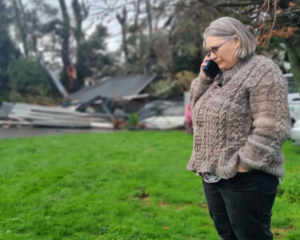
Yesterday, the government announced it would can the census, and instead it will be replaced with a combination of administrative data from other government agencies and smaller annual surveys that a sample of the population will complete.
This means there will be no 2028 census.
The announcement drew a mixed response from University of Otago professor of public health Michael Baker, who told the Otago Daily Times while he was aware that changes had been mooted, it was nonetheless surprising the government had taken this approach.
"We know we depend on the census for so much decision-making in New Zealand.
"It’s not just at the national level. A lot of it is the fine-grained data you need at the local level, which has always been the strength of the census because it basically aims, of course, to get total population enumeration and total coverage of all dwellings in New Zealand."
Prof Baker said this was the "great strength" of the census in its existing format.
"Right down to even the smallest local authority in New Zealand can get a sense of what is the population they’re looking after and what is the distribution, particularly of dwellings, and all the services they need."
Prof Baker acknowledged although the census attempted to capture everyone, there were some groups — in particular minorities or Pacific communities — that did not have as definitive information as others.
"The groups that have been under-counted have been more recent migrants, like Pacific communities, and I think some groups who perhaps have less trust in government.
"So that’s always been a challenge, and that may get worse with a system that relies on administrative data, because it can, if you like ... magnify current inequalities in the way some groups are measured."
The government’s announcement was made just as England and Wales look set to abandon a similar approach for their 2031 census, with the UK Statistical Agency recommending that a traditional census go ahead instead.
However, Statistics Minister Dr Shane Reti told RNZ he was confident the approach would work in New Zealand.
"Among other things, we’ve got a smaller population, so it’s a smaller problem to grapple with," he said.
The change followed a major review carried out last year, after the 2023 census.
Dr Reti said the traditional census was "no longer financially viable".
"Despite the unsustainable and escalating costs, successive censuses have been beset with issues or failed to meet expectations," he said.
Prof Baker said the census was "actually an investment in making good decisions that will save vastly more if we get it right and cost far more if we get it wrong".
"I don’t think from what I’ve seen, that we can be as confident in the shift to an admin data first model that it will actually fix those deficiencies, limitations of the census, and give us something that’s at least as good to replace it."
Prof Baker said there had been other proposals, such as a a centralised register-based system, which could potentially be more effective and encapsulating than the present census approach.
This method had been proposed in a Public Health Communication Centre briefing, released yesterday to coincide with the government announcement.
"It would go a step further in that it would actually have everyone on a unique register.
"So that would give you ongoing high-quality data, but also it would be much better at avoiding under-counting of some groups.
"It would be updated every time someone had an encounter with the system.
"Also, you’d give the public access to their records so they could correct it, and that would probably enhance trust."












